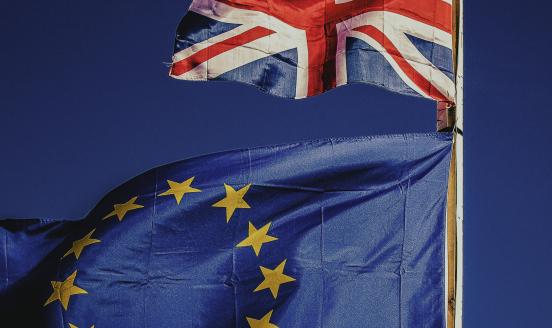Losing “EU passport” would damage City of London
If the UK cannot secure a “Norway” deal and stay within the internal market, the UK will lose the passporting rights which make London attractive as a
1. Passporting
Part of London’s attractiveness as international financial centre is the access to the internal market of the wider European Economic Area (EEA). By using a UK licence as European passport, foreign financial firms can offer their financial services throughout the EEA. If the UK cannot secure a “Norway” deal and stay within the internal market, the UK will lose these passporting rights.
The internal market is underpinned by a network of Directives and Regulations, which permit access to other EEA member states if a firm has a licence in one member state (the ‘home’ member state). The most important directives for financial services are:
- the Capital Requirements Directive (CRD IV, 2013/36/EU) for banking
- the Markets in Financial Instruments Directive (MiFID, 2004/39/EC) for investment services
- the Alternative Investment Fund Managers Directive (AIFMD, 2011/61/EU) for hedge funds and private equity
- the Insurance and Reinsurance Directive (Solvency II, 2009/138/EC) for insurance
We illustrate the how the passport works legally with the Capital Requirements Directive (CRD IV), the legal framework for credit institutions (banks). The passport consist of several elements of the CRD IV:
- Licence: Title III of CRD IV (Articles 8 to 21) specifies the requirements for access to activity of credit institutions. The main element is authorisation by the home supervisor, which provides the single licence.
- Freedom of establishment: Title V (Articles 33-39) contains the provisions concerning the freedom of establishment and the freedom to provide services. It means that if a credit institution is authorised in one member state, it has the freedom to establish a branch in (or to provide services to) any other EEA member state without prior approval. The credit institution only needs to notify the host country supervisor.
- Home supervision: Title VII sets out the principles of prudential supervision, which predominantly gives powers to the home supervisor with some very limited powers for the host supervisor in the area of liquidity supervision. As these powers of liquidity supervision are related to the operations in different currencies, the new European Banking Supervision framework has decided to give up these host country powers within the euro area, which uses the single currency (Schoenmaker and Veron, 2016).
This system of full access based on a single passport (provided by the home country supervisor) is constrained to the EEA. So, if the UK were to leave the EEA, UK licensed banks (either UK head-quartered or foreign-headquartered) would need to obtain an extra licence from the host supervisor in an EEA member state in order to offer financial services in that member state.
An extra licence would be necessary for all forms of cross-border services, ie through the establishment of a branch or subsidiary or through the direct offering of cross-border services. The UK would then become a third country, which needs to find a point of access for business in the EEA. Similarly, EEA financial institutions would need to apply for a licence to enter the UK. The other Directives apply a similar passporting system to the CRD IV.
2. Banking vs insurance
An interesting question is whether different financial sectors are equally affected by possible changes in passporting arrangements for the financial sector. We examine the two largest financial sectors, banking and insurance. It appears that banking relies far more on the passport than insurance. We measure this by differentiating cross-border business through branches (based on the passport) and subsidiaries (new licence).
Table 1 reports the relative share of branches and subsidiaries in cross-border business. The passport (branch) is not important for insurance. The aggregate number for all EU member states is 13 percent, and even less for the UK at 9 percent. These are minor amounts. The main vehicle is through subsidiaries, because insurers want to contain ‘insurance’ risk in separate legal entities. At the aggregate EU level, the relative share of branches is 36% for banking.
Finally, European banks typically use their passport to enter the London wholesale market; that is for 69 percent of the cases. Many international banks, including the major European ones, have branches operating in London, which is an international financial centre, but actually do little business with UK clients (Burrows and Low, 2015).
Summing up, insurance will be far less affected than banking if and when the UK leaves the EU. Next, the major European banks would need to apply for a UK licence, if they want to keep on doing business in London. Examples are Deutsche, BNP Paribas, Societe Generale, ING and UniCredit. The largest European bank in London is Deutsche Bank, which gets 19 percent of its total net revenues from its UK branch (Deutsche Bank, Annual Report 2015). In turn, the UK banks would need to apply for a licence in the EEA. Some major banks have already a subsidiary on the continent: HSBC in France and RBS in the Netherlands. Barclays is operating through branches, for example, in Italy and France (Schoenmaker and Véron, 2016). Lloyds Bank has almost no foreign business.
3. What do the stock markets tell us?
Next to changes in passporting arrangements, the macroeconomic fallout from Brexit also damages the performance of banks and insurers. Reduced economic growth will directly affect banks in the UK as well as the rest of Europe. Lower interest rates would affect the business model of banks. Insurance companies would also suffer from lower interest rates, as the discounted value of their liabilities increases. On the asset side, insurers have made losses due to the financial market turmoil.
Figures 1 to 5 illustrate stock market performance in the UK as well as 4 other major EU countries from 22 June (the day before the referendum) till 28 June (3 working days after the referendum). Banks and insurers have experienced a far larger price decline than non-financial companies. While UK insurers are more affected that UK banks, it is the opposite for their European counterparts. In line with the larger changes in passporting arrangements, the banks are more affected than insurers in the 4 EU countries.
The authors would like to thank Bennet Berger and Alvaro Leandro for excellent research assistance.



